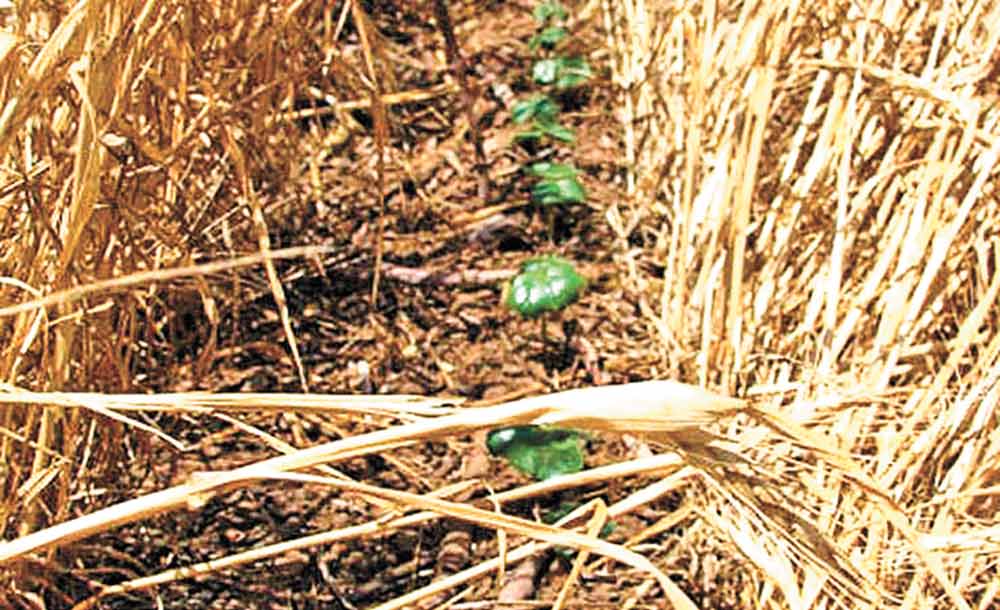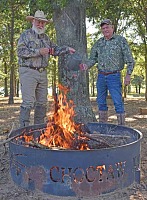Outdoor Life
Carbon credit brokers contacting landowners
 Cover crops qualify as a carbon offset project when considering carbon credits. Texas A&M AgriLife photo by Paul DeLaune
Cover crops qualify as a carbon offset project when considering carbon credits. Texas A&M AgriLife photo by Paul DeLaune
By Matthew R. March,
MNRD
Polk County Extension Agent
Related Articles
Carbon credit may be more than a buzz word among Texas agriculture producers. Producers and landowners across the state’s agriculture spectrum are increasingly reaching out to Texas A&M AgriLife Extension Service for advice on carbon credit contracts. Tiffany Lashmet, J.D., AgriLife Extension agricultural law specialist with the Texas A&M Department of Agricultural Economics, Amarillo, said she has been getting daily phone calls on this topic, especially since it is new territory and there are so many unknowns about it. A carbon credit is equal to 1 metric ton of carbon dioxide emission reductions from an unregulated source, according to the U.S. Environmental Protection Agency. Carbon offsets cannot be required by law. They are purchased by entities or people to mitigate their carbon footprints, and are transacted in the carbon market using serial numbers to avoid double counting. “We’re getting calls from landowners, producers and industry groups around the state,” Lashmet said. “There are a number of brokers and companies offering carbon contracts on Texas land right now. Farmers, rancher and rural landowners are trying to evaluate these contracts to determine if they are a good move for their operation.” First and foremost, Lashmet said as with any agreement, several legal and economic issues should be carefully considered by producers before entering into a carbon contract. “The most important advice I can offer is to carefully read the entire contract,” she said. “Never rely on verbal representations made by anyone related to a contract; assume only the written contractual terms will be enforceable. “This is new territory and many unknowns exist about the carbon market and these carbon agreements. I highly recommend engaging an attorney to review any carbon contract prior to signing.”
Understanding some of the basic concepts related to carbon contracts is an important starting place, Lashmet said. Each contract will likely have specific definitions of terms, so it is critical for landowners and producers to carefully review the definitions in any contract before signing. Terms like additionality, carbon market, carbon practices, carbon credit, carbon emissions, carbon sequestration, permanence, stacking and verification each have a specific meaning within a contract and must be analyzed and understood. Lashmet discusses these terms and evaluating carbon contracts in detail in her Texas Agriculture Law Blog. She outlines key contract terms to consider for landowners, farmers and ranchers who are considering a contract or who have been contacted to discuss one. For more information on carbon contracts, Lashmet also converses in one of her Ag Law in the Field podcast episodes with Todd Janzen and Anson Howard, both practicing attorneys actively negotiating these agreements for their clients.
You are a guest
or post as a guest
Be the first to comment.



